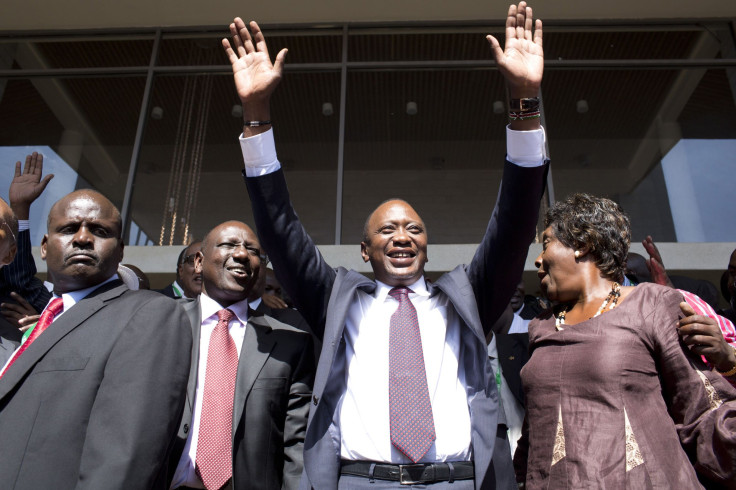War Crimes Charges: Kenya's New President Uhuru Kenyatta Inaugurated Despite Facing Indictment

Uhuru Kenyatta has been sworn in as the new president of Kenya after a largely peaceful election in March, despite accusations of foul play by main opponent Raila Odinga.
At a Tuesday inauguration ceremony, Kenyatta greeted supporters and took the oath of office, promising to “be faithful and bear true allegiance to the Republic of Kenya,” according to Reuters.
Tens of thousands of people were in attendance at the Nairobi event, including South African President Jacob Zuma, Nigerian President Goodluck Jonathan and former U.S. presidential candidate Jesse Jackson.
Despite all the fanfare, a cloud hung over the festivities.
Five years ago -- shortly after the last presidential election, in which Mwai Kibaki won a second and final term in office -- bloody clashes erupted between supporters of Odinga, who contested and lost that election, and supporters of Kibaki.
Kenyatta has been accused of inciting some of the ethnically charged violence that killed more than 1,200 people and displaced hundreds of thousands in 2007 and 2008. The International Criminal Court formerly indicted Kenyatta and five others, including Kenyatta’s current Vice President William Ruto, in March of 2011. Since then, long delays have impeded progress and three of the six cases have been dropped.
Kenyatta’s lawyers have been pushing for his case to be dropped as well, though prosecutor Fatou Bensouda does not yet seem inclined to move in that direction.
Kenyatta and Ruto have promised to cooperate with the court, which is based in The Hague. The trial is set to begin on July 9, though it may be postponed. It could go on for years, raising concerns that Kenya’s new president will be forced to spend considerable amounts of time abroad instead of in the capital city of Nairobi.
It is also possible that the indictment could endanger Kenya’s standing with the rest of the international community, driving a wedge between East Africa’s biggest economy and the West.
For now, Kenyatta will go about the business of assuming the presidency. It’s a big job; the Kenyan economy is fast-growing and the middle class is expanding, but the government is still plagued by corruption, poverty is still rife and ethnic disputes continue to rip into the fabric of society.
“My government will work with and serve all Kenyans without any discrimination whatsoever,” Kenyatta said Tuesday, according to Reuters.
The international community is expected to work with Kenyatta as he begins his first term, all while keeping a wary eye on the ICC as the case continues to unfold.
© Copyright IBTimes 2025. All rights reserved.






















